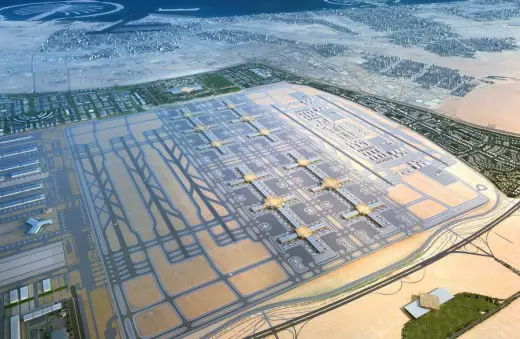A virtual gathering in Abu Dhabi on the agreement was attended by His Excellency Dr. Ahmad Belhoul Al Falasi, Minister of State for Entrepreneurship and Small and Medium Enterprises and Chairman of the UAE Space Agency, His Excellency Dr. Eng. Mohammed Nasser Al-Ahbabi, Director-General of the UAE Space Agency, Dr Arif Sultan Al Hammadi, Executive Vice-President, Khalifa University of Science and Technology and Masood M. Sharif Mahmood, Chief Executive Officer of Yahsat.
The main objectives of KUSTIC will be to build capabilities and create a technical space hub through training UAE students in satellite design and manufacturing, conducting scientific research in space sector and applications, developing satellite manufacturing capabilities in the UAE, promoting and inspiring entrepreneurship in the space sector, supporting space science and technology initiatives of the UAE Space Agency, and focus on the design and assembly/integration/testing of small satellites through the Yahsat Space Lab.
KUSTIC will aim to achieve the UAE’s vision in space exploration, technologies, and applications. It will play a crucial role in building capabilities and creating a technical hub by training UAE students in satellite design and manufacturing, conducting scientific research in the space sector and applications, and developing satellite manufacturing capabilities in the UAE. It will also promote and inspire entrepreneurship in the space sector; while supporting space science and technology initiatives of the UAE Space Agency.
The centre will incorporate the existing YahSat Space Lab (YSL), which was established in 2017 as the nationwide focal point in the design and Assembly/Integration/Testing (AIT) of CubeSats, both in terms of facilities and of expertise. All small satellite design, AIT and manufacturing activities of the Centre shall be performed at YSL. The lab produced and successfully launched the UAE’s first imaging CubeSat in 2018.
HE Dr. Ahmed bin Abdullah Hamid Belhoul Al Falasi, Minister of State for Entrepreneurship and Small and Medium Enterprises and Chairman of the UAE Space Agency said: “We are looking forward to achieving a fruitful collaboration with Khalifa University of Science and Technology and YahSat that aims to enhance the interest of the youth in technology and innovation and getting engaged in all areas of science, technology, engineering and math. Earlier this year, we launched a national strategy for the space sector that will help our country gain insights matching the level of advanced countries in this vital sector. Our wise leadership has spared no effort in developing scientific research facilities in the UAE, and providing young nationals with training and professional qualifications, as they are the key drivers to move forward towards achieving the government’s vision in this field.”
Dr Arif Sultan Al Hammadi commented: “Khalifa University continues to remain the perfect training ground for students in science and technology, providing the right infrastructure for future scientists to seek new worlds and reach beyond today’s frontier. We believe this partnership with UAE Space Agency and YahSat will further solidify our status as not only a research-intensive institution working in space-related technologies but also the ideal university that seeks to build human capital in the most advanced areas for tomorrow’s scientific development.”
HE Dr. Eng. Mohammed Nasser Al-Ahbabi, Director-General of the UAE Space Agency, remarked: “Our collaboration with Khalifa University of Science and Technology and YahSat will help in supporting the young Emiratis’ ambitions in working and being productive individuals in the space sector, thus enhancing the UAE’s leading status in the region and the world.”
Khaled Abdulla Al Qubaisi added: “As one of the trusted satellite operators in the world today, Yahsat embodies our nation’s dreams of becoming a leading technology innovation hub. We are committed to using our capabilities and standing as an industry leader to nurture the prospects of our youth and their potential on a global scale. By guiding scores of aspiring engineers at Yahsat Space Lab, we have discovered an enormous pool of talent within the UAE, and would like to develop it further. Yahsat’s responsibilities as a technology mentor have increased manifold with the inception of the new Space Technology and Innovation Centre. We will continue to extend our expertise and support the students through internships, career placements and research opportunities.”
According to the agreement, KUSTIC will specifically empower the development of various research thrusts covering major aspects of space mission development. KUSTIC will be an important partner in raising awareness about the space sector among Emirati youth, and the importance of their role in the advancement of national research and development. In addition to focusing on the design and Assembly/Integration/Testing (AIT) of small satellites, the centre will also aim to establish component, assemblies and subsystem manufacturing capabilities.
Two already existing Khalifa University research centres will contribute to KUSTIC’s activities. The ‘space robotics’ research thrust shall be covered under the leadership of the research staff from the KU Centre for Autonomous Robotic Systems (KUCARS) while the ‘space power’ and ‘energy storage’ research thrust shall be covered under the leadership of KU Advanced Power and Energy Center (APEC), another existing research centre.
KUSTIC will incorporate the existing Yahsat Space Lab and focus on research, satellite design, manufacture and CubeSat production by Emirati students.
satelliteprome.com










